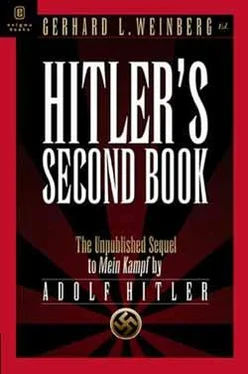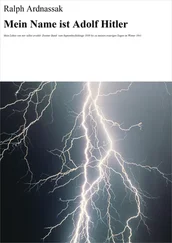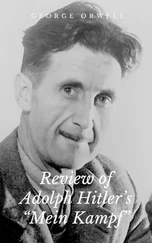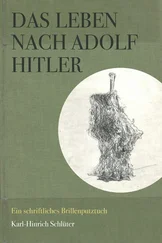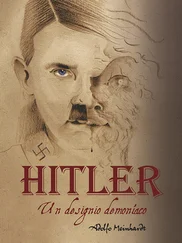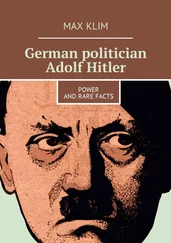Once a purely personally drawn responsibility is eliminated, the most compelling reason for the rise of a vigorous leadership falls away. Compare the army organisation [institution], oriented to the highest degree toward authority and responsibility of the individual person, with our democratic civil institutions, especially in relation to the results of the leadership training on both sides, and you will be horrified. In one case an organisation of men who are as courageous and joyous in responsibility as they are competent in their tasks, and in the other, incompetents too cowardly to assume responsibility. For four and a half years the German Army organisation withstood the greatest coalition of enemies of all times. The civil, democratically decomposed domestic leadership literally collapsed at the first thrust of a few hundred ragamuffins and deserters.
The pitiful lack of really great leading minds among the German Folk finds its most simple explanation in the desolate disintegration which we see before us through the democratic parliamentary system which is slowly corroding our whole public life.
Nations must decide. Either they want majorities or brains. The two are never compatible. Up to now, however, brains have always created greatness on this Earth, and what they created was again destroyed mostly through majorities.
Thus, on the basis of its general race value, a Folk can certainly entertain a justified hope that it can bring real minds into existence. But then it must seek forms in the mode of construction of its national body which do not artificially, indeed systematically, restrict such brains in their activity, and erect a wall of stupidity against them, in short, which prevent them from achieving efficacy.
Otherwise one of the most powerful sources of a Folk’s strength is blocked.
The third factor of the strength of a Folk is its healthy natural instinct for self preservation. From it result numerous heroic virtues, which by themselves make a Folk take up the struggle for life. No State leadership will be able to have great successes, if the Folk whose interests it must represent is too cowardly and wretched to stake itself for these interests. No State leadership, of course, can expect that a Folk possess heroism, which it itself does not educate to heroism. Just as internationalism harms and thereby weakens the existing race value, and as democracy destroys the personality value, so pacifism paralyses the natural strength of the self preservation of Folks.
These three factors — the race value as such, the existing personality values, as well as the healthy instinct of self preservation — are the sources of strength, from which a wise and bold domestic policy time and again can draw the weapons which are necessary for the self assertion of a Folk. Then the army establishments and the technical questions regarding weapons always find the solutions suitable to support a Folk in the hard struggle for freedom and daily bread.
If the domestic leadership of a Folk loses sight of this standpoint, or believes that it must arm for the struggle in terms of weapon technique only, it can achieve as much momentary success as it pleases, but the future does not belong to such a Folk. Hence the limited preparation for a war was never the task of truly great legislators and statesmen of this Earth, but rather the unlimited inner and thorough training of a Folk, so that its future could be secured almost as by law, according to all human reason. Then even wars lose the isolated character of more or less immense surprises, but instead are integrated into a natural, indeed self evident, system of fundamental, well grounded, permanent development of a Folk.
That present State leaders pay little attention to this viewpoint is partly due to the nature of democracy, to which they owe their very existence, but secondly to the fact that the State has become a purely formal mechanism which appears to them as an aim in itself, which must not in the least coincide with the interests of a specific Folk. Folk and State have become two different concepts. It will be the task of the National Socialist Movement to bring about a fundamental change here.
Chapter 4
ELEMENTS OF FOREIGN POLICY
Consequently if the task of domestic policy — besides the obvious one of satisfying the so called questions of the day — must be the steeling and strengthening of a nation by means of a systematic cultivation and promotion of its inner values, the task of foreign policy is to correspond to and collaborate with this policy in order to create and to secure the vital prerequisites abroad. A healthy foreign policy, therefore, will always keep the winning of the basis of a Folk’s sustenance immovably in sight as its ultimate goal. Domestic policy must secure the inner strength of a Folk so that it can assert itself in the sphere of foreign policy. Foreign policy must secure the life of a Folk for its domestic political development. Hence domestic policy and foreign policy are not only most closely linked, but must also mutually complement one another. The fact that in the great conjunctures of human history domestic policy as well as foreign policy has paid homage to other principles is not at all a proof of soundness, but rather proves the error of such action. Innumerable Nations and States have perished as a warning example to us, because they did not follow the above mentioned elementary principles. How little man thinks of the possibility of death during his life is a noteworthy fact. And how little he arranges the details of his life in accordance with the experiences that innumerable men before him had to have and which, as such, are all known to him. There are always exceptions who bear this in mind and who, by virtue of their personality, try to force on their fellow men the laws of life that lay at the base of the experiences of past epochs. Hence it is noteworthy that innumerable hygienic measures which perforce redound to the advantage of a Folk, and which individually are uncomfortable, must be formally forced upon the main body of a Folk through the autocratic standing of individual persons, in order however to disappear again when the authority of the personality is extinguished through the mass insanity of democracy. The average man has the greatest fear of death and in reality thinks of it most rarely. The important man concerns himself with it most emphatically, and nevertheless fears it the least. The one lives blindly from day to day, sins heedlessly, in order suddenly to collapse before the inevitable. The other observes its coming most carefully and, to be sure, looks it in the eye with calm and composure.
Such is exactly the case in the lives of nations. It is often terrible to see how little men want to learn from history, how with such imbecilic indifference they gloss over their experiences, how thoughtlessly they sin without considering that it is precisely through their sins that so and so many Nations and States have perished, indeed vanished from the Earth. And indeed how little they concern themselves with the fact that even for the short time span for which we possess an insight into history, States and Nations have arisen which were sometimes almost gigantic in size, but which two thousand years later vanished without a trace, that world powers once ruled cultural spheres of which only Sagas give us any information, that giant cities have sunk into ruins, and that their rubble heap has hardly survived to show presentday mankind at least the site on which they were located. The cares, hardships and sufferings of these millions and millions of individual men, who as a living substance were at one time the bearers and victims of these events, are almost beyond all imagination.
Unknown men. Unknown soldiers of history. And truly, how indifferent is the present. How unfounded its eternal optimism, and how ruinous its wilful ignorance, its incapacity to see, and its unwillingness to learn. And if it depended on the broad masses, the game of the child playing with the fire with which he is unfamiliar would repeat itself uninterruptedly and also to an infinitely greater extent. Hence it is the task of men who feel themselves called as educators of a Folk to learn on their own from history, and to apply their knowledge in a practical manner [now], without regard to the view, understanding, ignorance or even the refusal of the mass.
Читать дальше
